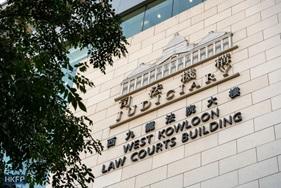Mumbai is expected to get 5,837 new close circuit television cameras (CCTV) by the end of December as part of the second phase of the surveillance network, home department officials said
The new CCTV cameras will come up at more than 2,300 locations at the cost of ₹323 crore. This is in addition to the 5,260 cameras already spread over the city. The cameras are used for traffic management during protests and disaster management during natural calamities as well as to help curb crime.
The CCTV surveillance network was inaugurated in October 2016 with CCTV cameras in 1,462 locations as part of the first phase, which cost ₹980 crore. In the second phase, the cameras will come up in previously uncovered areas. To make the project feasible, the state government has waived off the trenching charges which were expected to the tune of ₹800 crore. Trenching charges are levied against permissions to place poles for cameras in roads and footpaths.
According to home department officials, most of the permissions required for trenching have been acquired at local level and the cameras are expected to go live before the year ends.
“The state cabinet while clearing the first phase, had empowered the high power committee headed by chief secretary to take the subsequent decisions related to the upgradation of technology and addition of cameras and locations.
Accordingly, the new 2300 locations have been added after the suggestions and assessment by the Mumbai police. Implementation of the second phase does not need a fresh tendering process because of the cabinet decision and hence the second phase is being implemented by Larsen & Toubro,” said an official from the home department.
L&T, which was shouldering the responsibility of maintenance of the network for five years, is expected to have its agreement extended by another year in 2023. “As per the agreement with the state government, the company is mandated to ensure that 95% of the cameras are operational at any given point of time.
The failure in maintenance of the operation rate may cause a penalty to the operator. Though in some cases, the rate dropped because of the dislocation of the poles uprooted due to the ongoing Metro rail work, the overall maintenance has been satisfactory,” another official from Mantralaya said. State has also integrated the CCTV network installed by private establishments like hotels, malls at 60 locations strengthening the surveillance system.
“The surveillance network has helped Mumbai police in reducing the crime rate substantially. The revenue generation through the collection of the penalty for violation of traffic rules has also been entailed because of the CCTV network. With the addition of the cameras in the second phase, the number of the cameras will surpass the number in London, which has 10,000 cameras,” another official from the home department said








